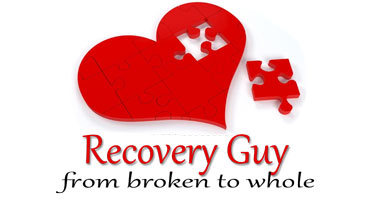
When Robert asked me to contribute twice monthly and shared that he was challenged to focus on the steps this year, I thought I would utilize one blog each month on the 12 steps. Al-Anon practices the same steps, from the perspective of loving and or living with addiction. My guess is since many have family trees that grow by the whisky river, you may also be able to relate to this perspective as the child of addiction or the partner or parent of one who suffers from addiction. Step 1: We admitted we were powerless over alcohol—that our lives had become unmanageable. I later began to paraphrase this step… I am powerless over people places and things. Yet, there is a difference between knowing I am powerless and admitting my powerlessness. When life seems very unmanageable, whether that is finances, emotional pain being unable to control outcomes, or your child is diagnosed with heart disease, the most important step you can take is step one. Absolutely anything that is outside my behavior and my choices I am powerless over. When we lose ourselves in trying to change someone else’s behavior, or manipulate circumstances, or obsess over fixing any particular situation, we will no longer have time for the things we can do to better any situation—things like focusing on our own spiritual life, our own physical health, our own mental and emotional well-being, and our actual responsibilities at work or around our home. I once heard it said at a meeting that you could always spot the alcoholic by how crazy the spouse is acting. As uncomfortable as that was to hear, it was hard to argue its validity. As I have shared before, control is simply a false sense of power. I clung to it because I so desperately did not want to admit my powerlessness. I was under the illusion that if I did just the right thing, I could change the alcoholic’s behavior. My acceptance of this powerlessness is the key to my life of recovery. Coming to understand that I did not cause it, I cannot control it, and I cannot cure it unlocked new freedom in my thinking. Their choices were never about me. I could surrender the burden of this misplaced responsibility. I could learn to care for myself. With years of practice, when I feel fear, anxiety, desire to run, or desire to numb, I can quickly take myself to this step. I can walk myself through the serenity prayer. Is this something I can change? Is this something I simply must surrender? I then can pray for the wisdom and courage to either act or let go. In my experience, radical acceptance of something—just as it is—saves me so much valuable energy. In recovery, I have learned that finite resource has many more beautiful ways to be utilized if I choose. Love and light to you my fellow warriors on this journey of recovery.

So true. And yet we often try to skirt around accepting this in our search for a less painful option!
Suzy, this is such a game changer in the recovery journey. It is a wonderful reflection about the actual and practical reality of radical surrender. I’m going to quote you in many places but my favorite is, “there’s a difference in knowing you are powerless and accepting it”. Thank you for sharing.